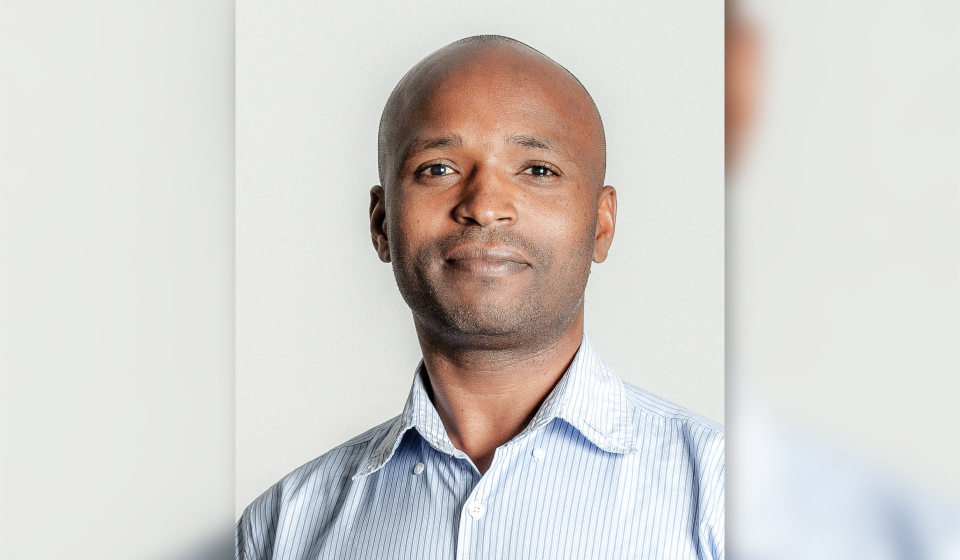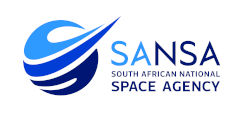
07 Feb SANSA Researcher, Dr John Habarulema, honoured with stellar NRF rating

Dr John Habarulema
The National Research Foundation (NRF) rating system is a key driver in the NRF’s aim to build a globally competitive science system in South Africa. It is used as benchmark of South African based researchers against the best in the world.
The ratings are allocated based on a researcher’s recent research outputs and impact as assessed by the peer review system. It therefore gives an indication of one’s academic standing with respect to their peers worldwide. In this context, it is a significant assessment of one’s academic or research outputs both in quality and impact through a peer-review mechanism.
Five SANSA Researchers recently received excellent NRF rating results. We caught up with Dr John Bosco Habarulema, one of very few researchers in South Africa to move straight from a Y rating (Young Researcher with potential) to a B rating (Internationally recognised researcher) in six short years. Here’s a recap of the interview…
Q: What does this remarkable NRF rating mean to you personally, and professionally?
It is quite difficult to decouple personal achievements from contributions of various networks that play critical roles in my research. I have been fortunate enough to work with talented and committed postgraduate students who have played a vital role in my professional development. A number of them have since moved to new roles as researchers and lecturers all over the world.
The work environment is perfectly conducive as it allows for experimentation of ideas – a critical aspect in research. I also owe great gratitude to my work colleagues at SANSA and collaborators in different parts of the world. From a professional perspective, the achievement of a B2 rating from the NRF is recognition that we are on the right path as viewed from the peer review system. In essence, it is an encouragement to strive for more achievements. I have come to learn that the more you work, the more work you get.
Q: What is your field of research and why are you so interested in it?
My field of research is Ionospheric Physics, which deals with understanding the ionised part of the Earth’s atmosphere. I do this both through mathematical/physical modelling and characterisation on short and long time scales. The interest in studying the ionosphere stems from the fact that it is continuously dynamic as a result of internal and sometimes external factors. It supports high frequency communication and affects most navigation and positioning applications. By understanding its changes under different conditions, we are able to quantify the range of errors likely to be experienced during extreme space weather events and attempt to design mitigation mechanisms through the development of models which have nowcasting and forecasting capabilities.
Q: What changes have you seen in the last decade in space research in South Africa and the world?
When I started attending international conferences in 2007 as an MSc student, I noted one thing through most presentations which strengthened my resolve to contribute as best as I could to change the trajectory of space research in the African continent. Space research knowledge was nearly non-existent in most African countries (with the exception of mainly South Africa and Nigeria). In most cases, references about what happens over the African region were from authors outside Africa, and some conclusions were limited by lack of information within the continent. In the last decade, this has changed considerably. Through collaborations with researchers and scientists all over the world, there has been a number of trained personnel in most African countries who are now lecturers and research scientists in many countries on the continent.
There has also been considerable deployment of instruments to answer varying scientific questions throughout the continent. As a spinoff of these engagements and initiatives, there are a number of emerging Space agencies on the continent which collaborate with their sister organisations around the world. Of course in South Africa, SANSA was formed to coordinate space related activities nationally. In the last decade, space research in South Africa has expanded to include new disciplines, is strong and will continue to grow into the future as long as we keep the focus on training students at all postgraduate levels.
Globally, there has been significant improvement in scientific collaboration and availability of research resources (including new instruments and making most data freely available for academic use) in the last decade. In particular, collaboration made it possible to deploy instrumentation in some regions that we depend on to do our research. Collaboration is essential as research problems are usually complex to be solved in isolation.
Q: What is next for you?
It is my intention to continuously learn from students, colleagues as well as existing and emerging knowledge to contribute to outstanding science questions in my field. We shall also increase our efforts in training the next generation of scientists so that there is a wide pool of people to carry the work forward when we finally bow out of the research/academic arena. To sum it up, what is next is more and more work!
Q: What advice do you have for children who are interested in space?
Find out as much as you can about subjects relevant for careers in Space related disciplines. Talk to your teachers and parents about your aspirations and, if possible, visit space institutions to get a first-hand experience of the work done in Space Science, Engineering and Applications.
I will definitely advise everyone to visit SANSA to get ideas about the diverse work performed in the organisation. We need young people to make the country, African continent and world a better place by solving existing structured problems by utilising highly specialised skills acquired through Space Science and Engineering research and applications.
For a fulfilling and successful space career, you need to acquire the right information, be able to set goals, then remain focused and committed to achieving those goals. The work will be hard, but the effort will be worth it!



